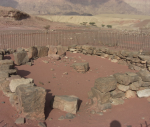You are here
Two-day conference on civil society and refugee issues begins
By Fares Al Abed - Sep 10,2017 - Last updated at Sep 10,2017

Minister of Political and Parliamentary Affairs Musa Maaytah gives the opening speech at the ‘Civil Society and Refugee issues/the Syrian Refugee Crisis’ conference in Amman on Sunday (Photo by Fares Al Abed)
AMMAN — The National Centre for Human Rights (NCHR) on Sunday launched a two-day conference titled “Civil Society and Refugee issues/the Syrian Refugee Crisis”, with the support of the European Union.
“The civil society institutions have contributed in mitigating the burden on the state institutions, although the large influx of Syrian refugees has created severe challenges affecting several sectors,” Minister of Political and Parliamentary Affairs Musa Maaytah said, highlighting the economical challenges facing the country and the increased national debt.
He stressed the need for the international community to increase its aid to the Kingdom, noting that the current support was insufficient to help Jordan provide for the Syrian refugee community.
“Since the beginning, Jordan has been a home for all and has made it clear that it would be home for those who cannot be safe in their home country anymore,” he stated.
Maaytah added that the effects of the refuge crisis also extend to security aspects, citing the spread of “takfiri” ideology, in addition to the sleeping cells repeatedly caught by security bodies.
For his part, the Commissioner General of the NCHR Musa Braizat said that the effects of the refugee influx on the Jordanian civil society has long remained “unnoticed” by the parties involved in the Syrian crisis.
He pointed out the “cumulative negative effects” of the refugee issue on the Jordanian civil society, noting that they will continue despite the expectations of a political solution in the Syrian crisis, and the voluntary repatriation of many people, as the means of subsistence, survival and security of people who ought to return to Syria are still not guaranteed.
The head of Cooperation at the EU Delegation to Jordan, Ibrahim Laafia, said: “The financial assistance of the EU and its member states to Jordan has reached unprecedented levels in recent years, with a $1.4 billion contribution by the end of 2016.”
He stated that, in the education sector, the EU has taken a leading role within the donors group, with almost $245 million earmarked for basic and higher education.
“We translated words into deeds,” Laafia said, noting that 125,000 Syrian children were enrolled in Jordanian public schools last year, and around 600 bachelor’s and master’s degrees scholarship have been provided through EU support.
“In the health sector, we are expanding the Ministry of Health’s facilities that were impacted by the Syrian crisis by upgrading and equipping emergency departments in three public facilities: Ruweished Hospital, Jamil Tutanji Hospital in Amman, and Ramtha Hospital,” the EU official said.
Related Articles
AMMAN — A two-day conference discussing ways to mitigate the Syrian crisis’ effects on local societies concluded in Amman on Monday.&n
AMMAN — The National Centre for Human Rights (NCHR) will hold a conference on Sunday and Monday, titled "Civil Society and Refugee issues/ t
AMMAN — Minister of Political and Parliamentary Affairs and Minister of State Musa Maaytah on Thursday said the Decentralisation Law allows
















